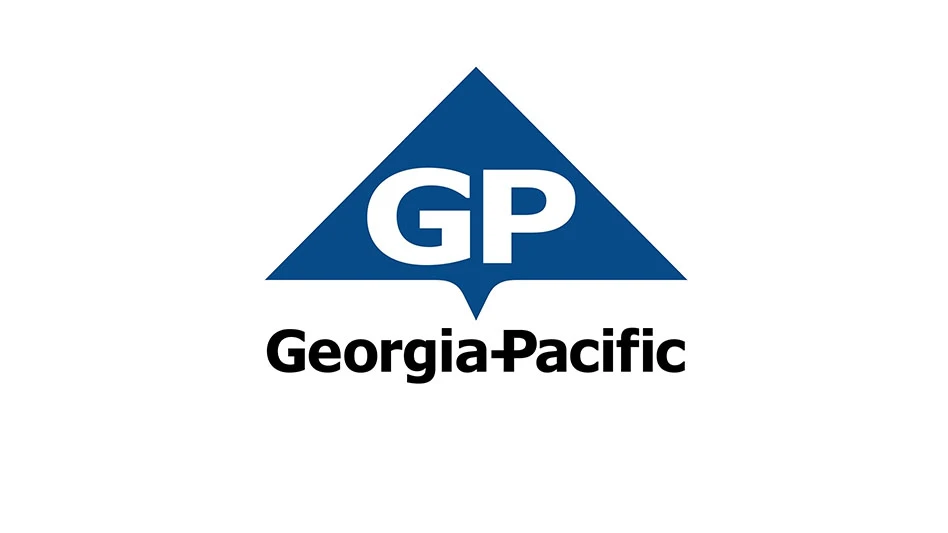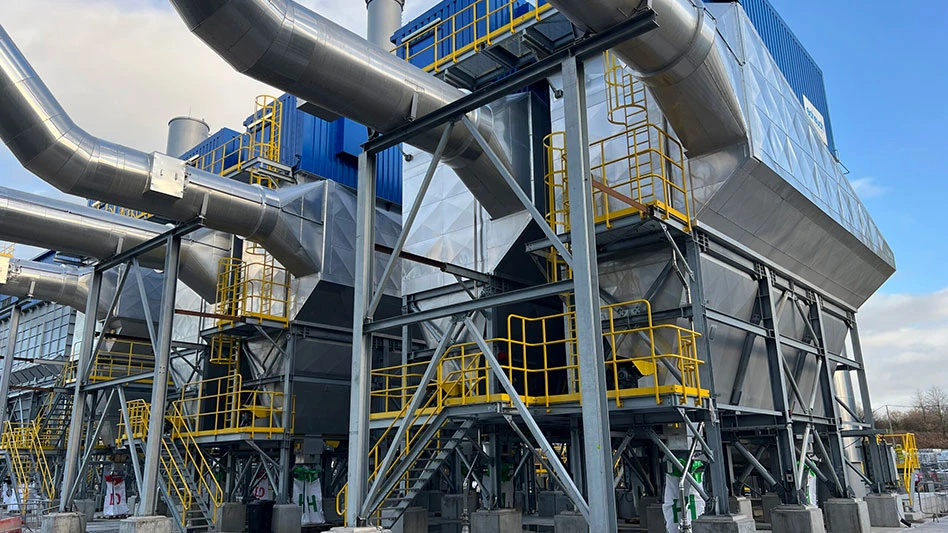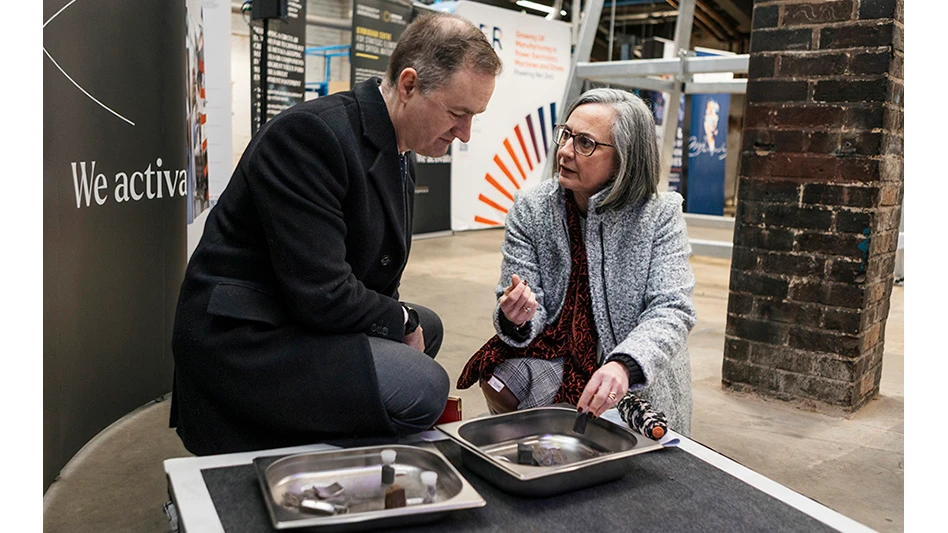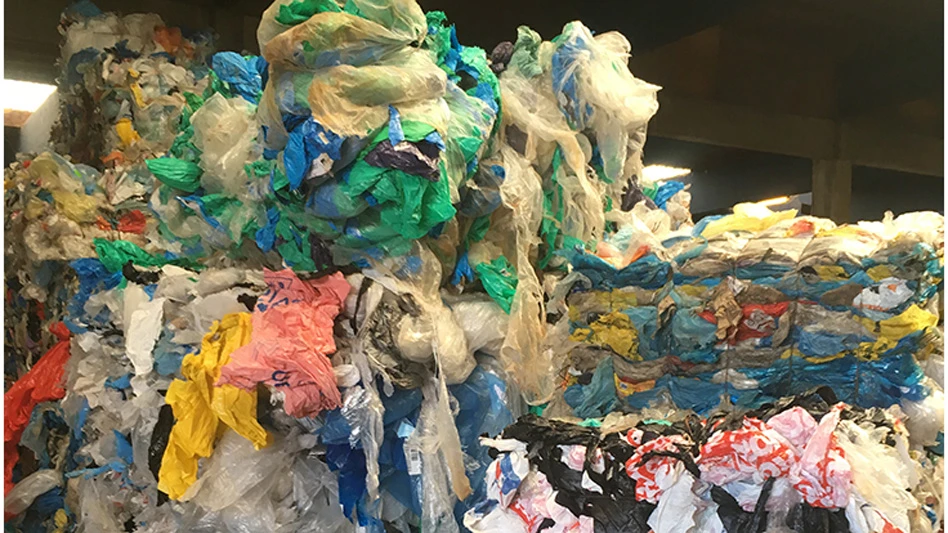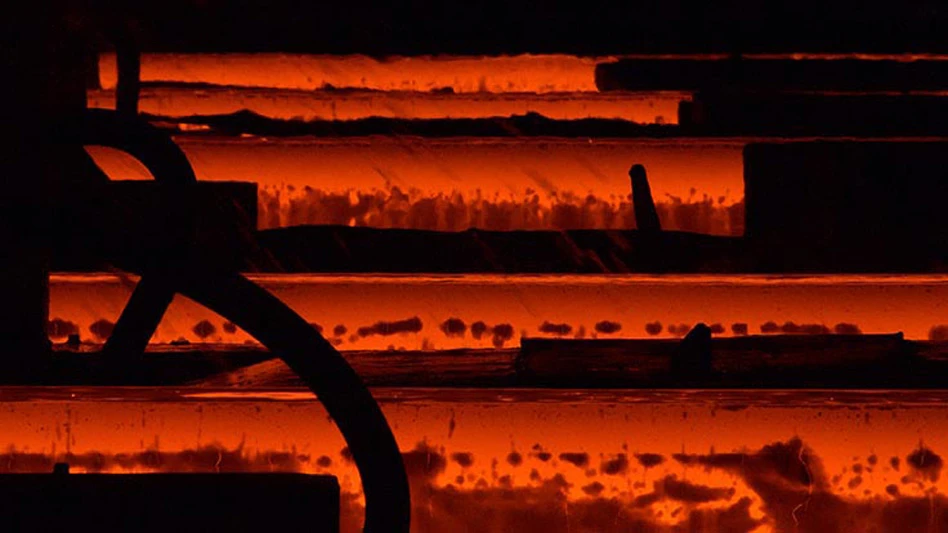FROM WASTE TO ROADS IN THE UNITED KINGDOM
Engineers at Nottingham University in the United Kingdom have proposed a massive nationwide recycling operation to turn industrial waste into environmentally-friendly road materials.
Andrew Dawson and his university colleagues have identified a wide variety of waste materials from all over Britain that, if used to replace conventional aggregates, could drastically reduce the need for quarrying. The materials include steelworking slag, colliery spoils, slate waste, power station ash, china clay sand and demolition debris from all over the country.
“In 1990, 100 million metric tons of natural aggregates were used in road construction and repair,” says Dawson. “By the year 2010, this is expected to climb to 160 million metric tons. This aggregate comes from quarries often in areas of great natural beauty or from gravel pits.”
At the same time, he adds, large quantities of waste or by-product aggregate is disposed of annually, and more is constantly being generated. The goal is to use this material to build roads, although there are some challenges to doing so.
“Waste and by-product aggregates are often weak and dirty, may wear out, and may present size problems,” says Dawson. “To get around this, we are exploring ways of treating the waste with cement, lime and other materials to make them stronger, and treating them with alkalis and chemical binders to prevent any contaminants from leaching out.”
GYPSUM ELIMINATES ODORS FROM SWINE OPERATIONS
The North Carolina Recycling Business Assistance Center, Raleigh, N.C., is exploring the idea of using a product made from scrap gypsum wallboard, or sheetrock, to cut down on odors from swine operations – a subject that's causing a lot of stink in the state – and to provide an alternative to anaerobic lagoons. This would also serve the purpose of eliminating gypsum disposal problems. The end product, which is rich in nitrogen, could be used as a ingredient in fertilizer.
Gypsum, composed of calcium sulfate, reacts to ammonia – a main component of swine waste odor – to form ammonium sulfate, which is stable and has no odor. RBAC plans to work with Waste Reduction Products Corp. to test the use of scrap gypsum wallboard in swine operations.
Approximately 130,000 tons of scrap gypsum wallboard are generated in North Carolina annually.

Explore the January 1996 Issue
Check out more from this issue and find your next story to read.
Latest from Recycling Today
- Huber+Suhner expands sustainable packaging usage across fiber optic portfolio
- Lummus Technology invests in tire recycling solution from InnoVent Renewables
- WM plans $88 million recycling facility redevelopment in Florida
- Nonferrous markets start 2026 in dramatic fashion
- Novelis names chief operating officer
- Cards Recycling, Live Oak Environmental merge to form Ecowaste
- Indiana awards $500K in recycling grants
- Atlantic Alumina partners with US government on alumina, gallium production
